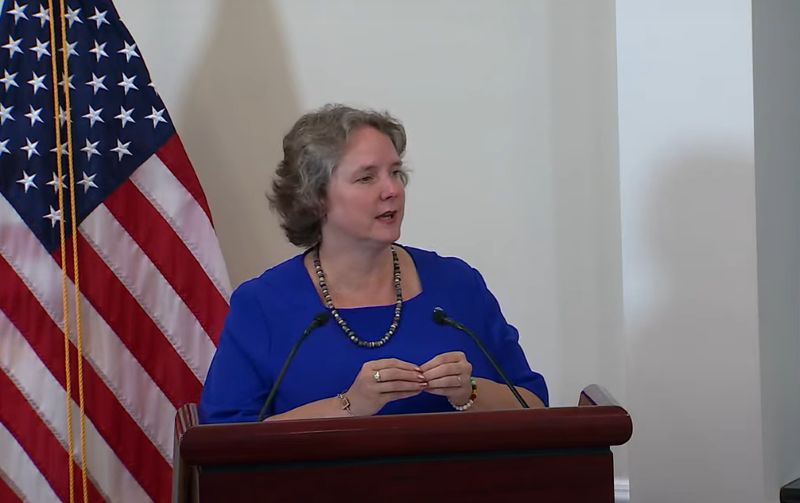Government
White House Resilience Push Includes $328M for Water Projects

Madison, Wis., Mayor Satya Rhodes-Conway, chair of Climate Mayors, told a White House summit that she hopes its just released resilience framework “sparks a national conversation” about building and rebuilding infrastructure and the built environment to be more resilient to the effects of climate change
Photo courtesy of The White House
The U.S. Dept. of Interior said Sept. 28 it will offer up to $328 million in funding opportunities for water recycling, water storage and desalination projects to help communities address the impacts of climate change.
Its Bureau of Reclamation is investing $239 million for water reclamation and reuse projects, up to $64 million for desalination construction, and up to $25 million for small surface water and groundwater storage in 17 Western states, Hawaii and Alaska.
“Reclamation is offering a variety of opportunities to assist communities and irrigation districts in fully utilizing their current water supplies and tapping into potential new supplies,” said BuRec Commissioner Camille Calimlim Touton. “As we work with our stakeholders to address impacts of climate change, these projects will diversify water portfolios and help provide flexibility.”
The funding availability was announced on Sept. 28 along with other climate resilience initiatives at the White House Summit on Building Climate Resilient Communities, attended by mayors and community leaders across the U.S. to discuss how to work collectively to develop programs and plans to improve resilience over the next several years.
The Biden administration also released the National Climate Resilience Framework, which White House officials described as a guide to align climate resilience investments and activities by the federal government and its funding partner.
Among the recommendations: embed climate resilience into planning and management and increase resilience of the built environment to both acute climate shocks and chronic stressors.
At the White House summit, Satya Rhodes-Conway, mayor of Madison, Wis., said she hopes the resilience framework “sparks a national conversation” about building and rebuilding infrastructure and the built environment to be more resilient to the effects of climate change.
She is chair of Climate Mayors, a bipartisan network of about 750 U.S. mayors who are committed to climate leadership in their respective cities.
Noting that Madison was overwhelmed and unprepared for poor air quality caused by the Canadian wildfires last year, she said, “We need all hands on deck. We need everybody to be thinking about mitigation and adaptation … [and] we have an unprecedented opportunity to help our communities respond to climate change, thanks to President Biden’s historic climate investments.”
Earlier in the month, the U.S. Dept. of Energy opened applications for $400 million for states and territories to adopt and implement building energy codes to increase efficiency, reduce greenhouse gas emissions and make buildings more resilient to climate disasters.




